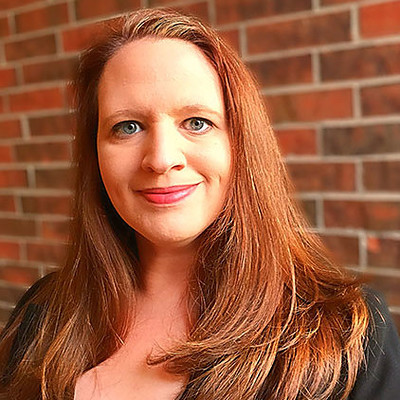The success of our programming has been tied to the support of our institutional leadership. As a comprehensive academic health center with almost thirty participating programs, reliance on grassroots programming led by IPE champions was not sustainable. It was only with the support of our Chief Academic Officer that our interprofessional programming significantly matured. Improvements seen include establishment of the Office of Interdisciplinary Programs under the Vice Provost, access to funding through the establishment of a mandatory fee, and appointment of staff FTE in addition to faculty/facilitator supplemental pay. We have noted lessons to share for successful leadership and mentorship for IPE.
First, leadership must assemble a support team of coordinators to supervise and implement programming at the campus level. IPE champions are effective within their department or college. However, comprehensive programming requires centralized administrative support. We’ll discuss our organization chart and methods for practical administrative support.
Second, institutions should leverage areas of expertise in program delivery. Suggestions include seeking those with expertise in higher education administration, student support services, program evaluation, public relations and marketing, translational science, and group dynamics. We’ll discuss the diversity involved in our team and discuss methods to leverage expertise from within.
Third, institutions must commit to robust and transparent communication with campus constituents including students, faculty, and staff. This includes active methods for written, verbal, and digital contributions where constituents are sought as team-members and not just as content recipients. We’ll discuss our methods for outreach and provide tips on a communication plan.
Last, we suggest institutional leadership intentionally engage community partnerships. Collaboration must reach beyond academic programs driven by accreditation requirements to provide both breadth and depth to meaningful, sustainable IPE activities. We’ll discuss methods to include community-based agencies, patient and family advocacy groups, and those working in diversity, equity, and inclusion initiatives.
Disclosures:
In accordance with the Accreditation Council for Continuing Medical Education’s Standards for Commercial Support, adopted by the Joint Accreditors for Interprofessional Continuing Education, the National Center for Interprofessional Practice and Education has a conflict of interest policy that requires that all individuals involved in the development of activity content disclose their relevant financial relationships with commercial interests. All potential conflicts of interest that arise based upon these financial relationships are resolved prior to the educational activity.
Barbara Head, Tara Schapmire, Jill Forcina, Meg Zomorodi, Paige Brown, Kae Livsey, Sarah Smithson, Gerri Lamb, Nina Karamehmedovic, Yvonne Price, Jody Thompson, Margaret Robinson, Denise Bender, Melissa Craft, Angela Harnden
declare no vested interest in or affiliation with any commercial interest offering financial support for this interprofessional continuing education activity, or any affiliation with a commercial interest whose philosophy could potentially bias their presentation.
In support of improving patient care, this activity is planned and implemented by The National Center for Interprofessional Practice and Education. The National Center for Interprofessional Practice and Education is accredited by the Accreditation Council for Continuing Medical Education (ACCME), the Accreditation Council for Pharmacy Education (ACPE), and the American Nurses Credentialing Center (ANCC) to provide continuing education for the healthcare team.
As a Jointly Accredited Provider, the National Center is approved to offer social work continuing education by the Association of Social Work Boards (ASWB) Approved Continuing Education (ACE) program. Organizations, not individual courses, are approved under this program. State and provincial regulatory boards have the final authority to determine whether an individual course may be accepted for continuing education credit. The National Center maintains responsibility for this course. Social workers completing this course receive continuing education credits.
This activity was planned by and for the healthcare team, and learners will receive Interprofessional Continuing Education (IPCE) credit for learning and change.
- Physicians: This activity will be designated for CME AMA PRA Category 1 Credit(s)TM through ACCME.
- Physician Assistants: NCCPA accepts AMA PRA Category 1 Credit(s)™ from organizations accredited by ACCME or a recognized state medical society.
- Nurses: This activity will be designated for CNE nursing contact hours through ANCC.
- Pharmacists and Pharmacy Technicians: This activity will be designated for CPE contact hours (CEUs) through ACPE.
- Social Workers: This activity will be designated for social work continuing education credits through ASWB.
- All health professionals: This activity was planned by and for the healthcare team, and learners will receive Interprofessional Continuing Education (IPCE) credit for learning and change.






